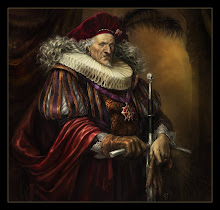Choose a poet and a poem of his or hers to explicate:
1. Name and Credentials: I chose the famed Edgar Allan Poe, not merely because of his incredible popularity but because of what I consider to be an unparalleled prowess with poetry which he flourishes in nearly all of his poems. He was abhorred by his peers whilst he was alive for inexplicable reasons, although some speculate it was jealousy. But I, alongside countless others, now revere him and his many works.
2. Poem
Alone
From childhood's hour I have not been
As others were; I have not seen
As others saw; I could not bring
My passions from a common spring.
From the same source I have not taken
My sorrow; I could not awaken
My heart to joy at the same tone;
And all I loved, I loved alone.
Then- in my childhood, in the dawn
Of a most stormy life- was drawn
From every depth of good and ill
The mystery which binds me still:
From the torrent, or the fountain,
From the red cliff of the mountain,
From the sun that round me rolled
In its autumn tint of gold,
From the lightning in the sky
As it passed me flying by,
From the thunder and the storm,
And the cloud that took the form
(When the rest of Heaven was blue)
Of a demon in my view.
3. Meaning; why you chose it: In all cases of explication, meaning is arbitrary. I am bold enough to claim that I believe the the poem describes an event which Poe perceived literally; I say this because of Poe's notorious feelings of solemnity and seriousness in the most fantastical of depictions, such as The Raven. From what history can tell of Edgar Allan Poe, he was a very enigmatic and bizarre person whose life was twisted by many misfortunes. In the work entitled "Alone," Poe seems to speak about his deviant nature and its childhood-based source. In the first line he claims that he had "not seen what others saw," and in lines 13-22 he continues on to elaborate on what his divergent view of the world was comprised of. From fountains to the sun to the clouds in the sky, Poe seems to say that he beheld demons in everything he saw and thus his vision of the realm around him differed from everyone he met or knew. For this reason he was alone, figuratively speaking. That which he loved others could not understand or envisage, and so he loved alone--line 8 voices this.
4. What do you like/dislike about this poem? Why?: It is difficult for me to dislike much of Poe's work. He always manages to keep a saccharine flow in his poems, often implements a wonderfully adept rhyme scheme, and seldom fails to enthrall my imagination with his depictions, be they figurative or literal. Alone sets the classical melancholy mood of Poe's writing and abides by all that I revere him for. Rest well you wonderful mad-man.
Sunday, May 9, 2010
Subscribe to:
Post Comments (Atom)


No comments:
Post a Comment